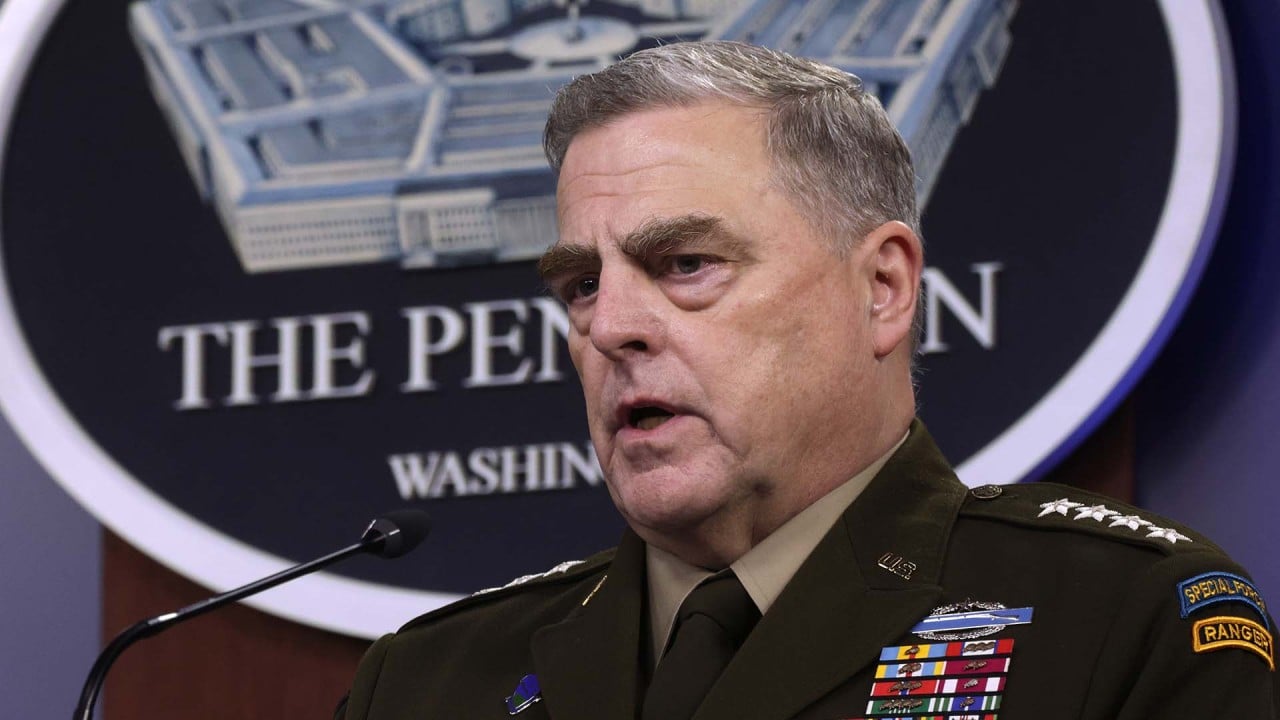
Japan-Australia defence deal could add fuel to China-US rivalry, analysts say
- Agreement will ease the way for deployment of Australian and Japanese forces and is expected to herald more joint military exercises
- Conditions could conspire to force more countries in the region to take sides, observer says
The prime ministers of Japan and Australia signed the Reciprocal Assessment Agreement on Thursday, allowing faster deployment of defence personnel to each other’s facilities and easing restrictions on transporting weapons and supplies for joint training and disaster relief operations.
More naval war games and aviation exercises are also expected under the new deal.
During the signing ceremony for the agreement, Australian Prime Minister Scott Morrison said the deal was a landmark treaty that would open “a new chapter for advanced defence and security cooperation of what is a complex and rapidly changing world”.
“Japan is our closest partner in Asia as demonstrated by our special strategic partnership, Australia’s only such partnership – an equal partnership of shared trust between two great democracies committed to the rule of law, human rights, free trade and a free and open Indo-Pacific,” Morrison said.
Japan has also been in talks with Britain for a similar agreement since October.
Thursday’s deal is the latest effort to bolster defence ties between the two countries, two firm allies of the United States.
In 2012, Japan and Australia signed an information agreement on sharing intelligence and five years later they inked the Acquisition and Cross-Servicing Agreement, allowing them to share fuel and other supplies in joint exercises, training and peacekeeping operations.
Thursday’s agreement is the first formal defence pact covering foreign soldiers that Japan has signed since the 1960 Status of Forces Agreement with the United States, which allows American military personnel to travel directly in and out of US bases in Japan without immigration.
Australia-Japan treaty could ‘ease US military burden’ in Indo-Pacific
Amid growing concerns over China’s influence in the region, the US and its allies are moving to deepen their cooperation in part of a Washington-led alliance strategy to counter Beijing.
The US, Japan and Australia are also part of a defence cooperation grouping with India known as the Quad.
In a joint statement released after Thursday’s ceremony, Kishida and Morrison said they welcomed a US commitment to close cooperation with allies in the region. The two nations would reinforce their alliances with the US, and looked forward to conducting a trilateral strategic dialogue.
Shi Yinhong, an international relations professor with Renmin University, said US-led defence cooperation in the region had become more complex, with China an apparent target.
“Apart from India, the military cooperation among the three Quad countries, as well as Britain, have been getting increasingly … practical and warmongering,” he said.
Chen Xiangmiao, an associate research fellow with the National Institute for South China Sea Studies, said the US was forming more small groups against China, but Beijing was unlikely to back down.
“The US is letting its allies take a bigger responsibility in security affairs in the region while countries like Japan are becoming active in playing a role in Washington’s Indo-Pacific strategy to counter China,” Chen said.
“It will be more and more difficult for small countries in the region to maintain autonomy in foreign policy and they will eventually be forced to take sides between China and the US.”
Shi said great power confrontation was expected to intensify to a dangerous level if India and Russia decided to step in.
Australia says China’s actions at odds with words as ship transits its coast
So far, India, a Quad member that is now locked in a border stand-off with China, remains reluctant to openly join the US-led “containment” against China.
Russia, which is widely seen as a quasi-ally to China, has maintained a neutral position over China’s long-standing territorial disputes in the South China Sea and Taiwan, two issues that are widely seen as the most likely military flashpoints in the region.
“But if the two countries changed their current positions, the Indo-Pacific region would face a very serious situation of military confrontation between major power groups and that could include the possible conflicts,” Shi said.


